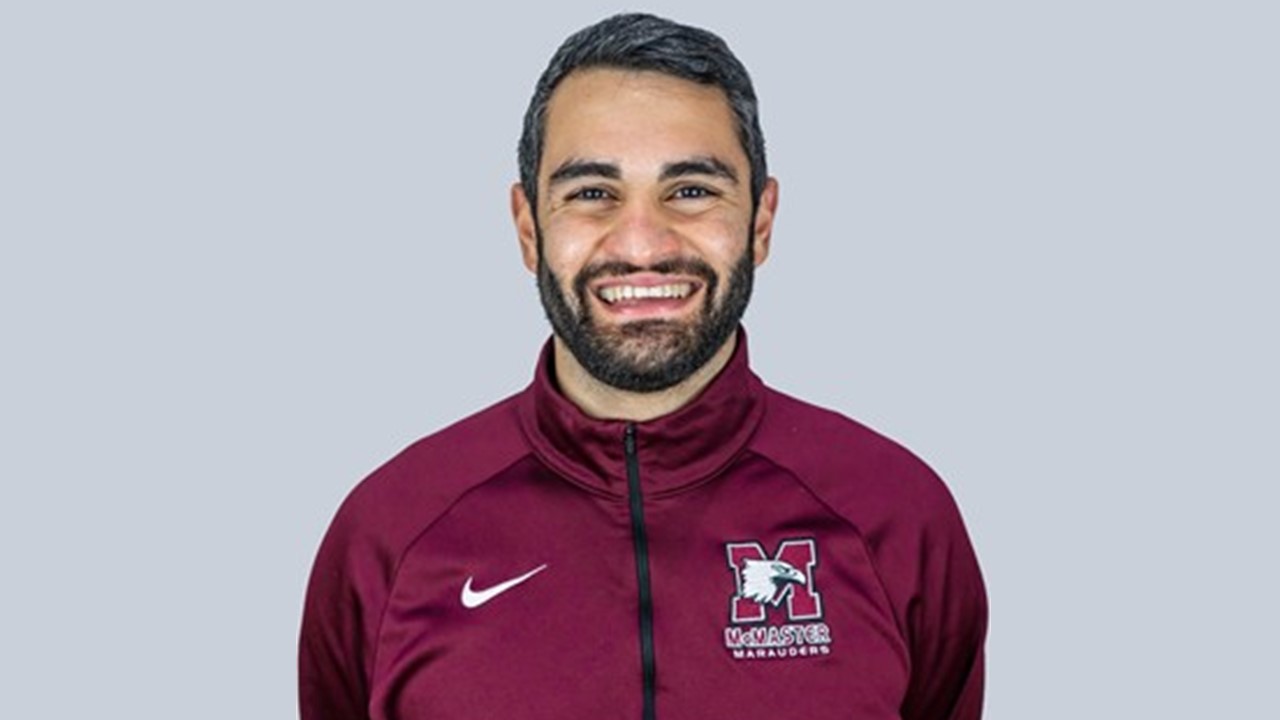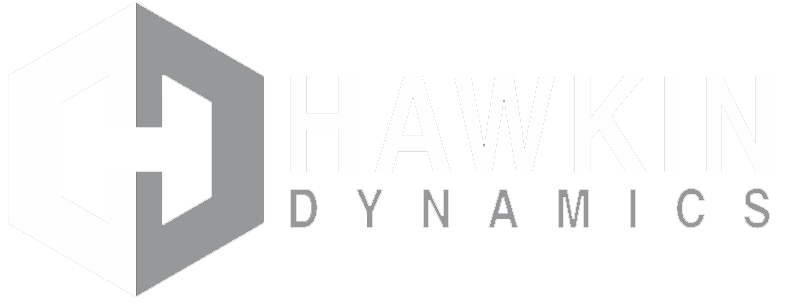From Ontario to BC: Experiences Guided by My Mentors Made Me a Better Coach

My career has been inspired by experiences guided by mentors. My education is what qualifies me for my job, yet the knowledge from my formal education is not what makes me effective in my role. Although I do not consider myself to be amongst the best coaches in the country, my position allows me to collaborate with those who are. When learning from a great coach, I have observed a common trend in their actions and results: passionate selfless coaches make organizations and their athletes better.
Coaches and teachers alike have had huge impacts on my life at various stages. I have always been interested in why people coach (or teach) and what qualities separate those who have made lasting impacts on me. The experiences I’ve had throughout my career are now rooted in my hiring decisions. I have been lucky enough to be mentored by 3 strength and conditioning coaches who are very effective at what they do despite having different programming and coaching styles. Working in a team environment is something that I have always valued and is the reason why I am so passionate about my position at McMaster. All three of these coaches work in a team environment, whether that is a team sport or a multidisciplinary team, and each of them impacts those they coach and work with through qualities such as utilizing your environment to create strength without needing fluff to teach work ethic. They emphasized observation and assessment of movement, and the importance of communication to build trust between you and the athlete or team. Through them I also learned the need for transparency of resources, thought processes and organizational skills.
A lifetime of passion for sport and a scholarship offer led me to pursue a Kinesiology degree at the University of Western Ontario. While part of the varsity football team at Western, a work-study position introduced me to Jeff Watson, head strength and conditioning coach at Western, my first mentor. Over the 4 years training under the supervision of Jeff, I can honestly say that none of our workouts were repetitive or boring. I gained an incredible amount of strength doing Jeff’s programs each year (specifically grip and neck strength). I can confidently say I will never, nor do I want to, work as much as Jeff did during my time at Western. The athlete to coach ratio in Jeff’s world not only required him to work such long days but adapt his training style to ensure safety while achieving maximal adaptation for his athletes.
It was truly inspiring to see Jeff make the best out of his environment and provide us with an enjoyable experience. I remember Jeff going down to the army surplus store and creating his own equipment out of boat anchors and other heavy objects he would buy with his limited budget (his own money). To this day, I have not met a more knowledgeable coach when it comes to equipment use and quality. I remember the “hour of power” circuits he would set up that taught us so much about hard work, resiliency, and sense of team while getting us in incredible shape. I also remember Jeff consistently reading and sharing different research articles which enhanced his already extensive muscle physiology knowledge. When I think of someone who is effective at creating strength while not needing any fluff to make the process enjoyable, I think of Jeff Watson. Whether it was explaining his reasoning, sharing research, or taking me to clinics, I am thankful for those valuable coaching skills which not only benefited the athletes I worked with for years, but drove my passion to pursue further education and experience in strength and conditioning.
After completing my Kinesiology degree at Western, I moved back home to Vancouver to pursue a Master of Kinesiology with a coaching specialization. I chose to pursue this degree as I was interested in learning more about successful people versus successful methods. This degree however was not the most important step I took as a coach during my time back in Vancouver. Carl Bergstrom, who is the head strength and conditioning coach for the Golden State Warriors, was one of my classmates at the time.
Carl worked at Level 10 Fitness in North Vancouver and thanks to him, I was able to organize a meeting with Joe McCullum. Joe was in charge of the staff at Level 10 and led the onboarding and education curriculum for the staff. I remember our first meeting like it was yesterday. Carl had warned me that I should be prepared and professional just like a formal interview, but it certainly was not just any interview. Joe has a way of very professionally (unless you know him well) cutting straight to the point and finding out the true motivation of an individual and if they are the right fit for the role. As I started shadowing him and others (including practitioners) at Level 10, I realized the incredible knowledge, talent, and culture that I had gained access to during my post graduate studies.
My ability to coach is because of what I learned from Joe. His ability to assess movement and identify training priorities for an athlete or a team is one of the best in the country. While shadowing and working with Joe, I realized that he was one of the most intelligent and well-read coaches. Even though he had forgotten more about strength and conditioning than I knew at the time, our discussions were always about people, how to best communicate and get the most out of each individual, and not about sets, reps and specific exercise selection.
Simple progressive programming, managing workload each session, and on the floor daily adjustments sounds like something every coach should do, but it requires incredible communication and attention to detail. My skills as a coach were exponentially improved by observing daily lessons like pre activity plans that were adjusted during initial conversations, lifts that were progressed/regressed or switched for another movement based on observations in warm up or conversations with the athletes, integration of therapy with training to ensure proper movement patterns were not only restored but maintained, and building trust and rapport with those you work with. Although the level of service the athletes at Level 10 enjoyed are not possible in our University setting due to much higher athlete to coach ratios, the principles of how athletes were taken care of has made myself, and organizations that I have worked with better. To this day, I think of Joe as one of my mentors and although he is overly critical, when I want to truly understand some of the inner workings surrounding high-performance culture, I phone Joe.
After 2 years of learning valuable lessons in the private setting and through my volunteer coaching in the high school setting, I was ready to pursue my true passion of coaching university athletes. Thanks to Joe, I was offered a job by McMaster and moved across the country away from my family in just 6 days to start my first job on a 1-year contract in a university setting.
Many coaches would agree that university athletes would benefit more from a role model rather than a sport science expert. The athletes in a university setting are preparing to be successful members of our society, and only for a few does that include sport as a career. When I first arrived at McMaster, I was driven to provide results right away. I was confident in my coaching and my knowledge, so I wanted to see change and make everything improve as soon as possible.
Throughout my involvement at McMaster, it is now clear that developing the person before the athlete, the most important aspect of our jobs, takes time. I have never met another individual who cares about making those around him better like Steve Lidstone cares for his colleagues and students. Throughout our 2 years of working together at McMaster I became a better person by sharing an office with Steve.
While giving me complete autonomy of the teams I was responsible for, he provided great guidance through sharing his past experiences and being completely transparent with every resource and thought he had. What I appreciated most was how Steve made me explain my reasoning on programming, decisions or any other plans. It takes incredible skill to have someone explain their thinking behind their work without insulting them or judging a different way of doing something. Steve was able to challenge and provide guidance while still making you feel like you are the most important piece in the puzzle.
In addition to providing every experience possible to make me a better person and coach (national team camps, presentations, clinics, etc.) I learned from how Steve’s incredible system served and educated many athletes and students. Organizing so many people in order to achieve common goals is a very difficult task. Some of the most valuable organizational skills I have learned in my career is through observing Steve prepare for and lead mass staff training sessions, training camp testing sessions, and national team camps. The life lessons I had over the course of my 2 years of working with Steve and the lessons I learned from experiences provided by him have made me a better coach but also made it easier to be away from family.
At times, I felt like I was getting groomed to be in charge of a program one day. This feeling became a reality when Steve decided to accept his current job, Associate Director of Performance, which provided him an opportunity to grow his career but also be closer to his home with his family. While I will always try my hardest to make sure I live up to his recommendation for me to take over the great program he built, I am more motivated to become the role model he is for his family and the athletes he works with.
The past 4 years I have had the opportunity to implement ideas and build systems for McMaster performance, educate students through a university course, coach professional and national level athletes, and mentor coaches. Although my education is what qualifies me to be in these positions, the lessons and experiences provided by my mentors have allowed me to be effective and impact those I work with.
The toughest part of my job has not been servicing over 400 athletes, managing a large budget, or making sure our teams perform. The toughest part of my job is making the right decisions without those mentors around, and to provide just as effective experiences and opportunities to our athletes, staff, and students as they did for me. Spending extra time in the weight room with Jeff, even when my work study hours were done, was not the most popular thing to do in undergraduate. Spending most of my free time at Level 10 was not something that was financially feasible during my post graduate time in Vancouver.
Volunteering at my old high school and other institutions throughout my education was not something that directly advanced my career. Moving to Hamilton away from my family from downtown Vancouver where I lived with my brother was not something that was easy to do. However, every time I approached an opportunity with the mindset of learning and getting better, I found an amazing individual or opportunity which proved to be a springboard in my career.
Choosing to sacrifice some income and shadow quality professionals in the field rather than start my own business right away was one of the most important and best decisions I made as a coach. Our profession is full of experienced, passionate, and knowledgeable coaches. In order to truly learn from someone, or from an environment, we must commit to a long-term vision of improving as coaches.
There are no 3-month internships that can mold a coach to be ready for any job. There are no degrees or certifications which can allow a coach to function at a high level in a multidisciplinary team. Our education provides us with the hard skills necessary to design programs or assess athletes. It is our experiences and lessons from others that allow us to educate, motivate, inspire, and empower.
Author Bio
Bahman (Ben) Bahrami MKin, CSCS is the Strength and Conditioning Coordinator at McMaster University and a member of the CSCA’s Advisory Team.






